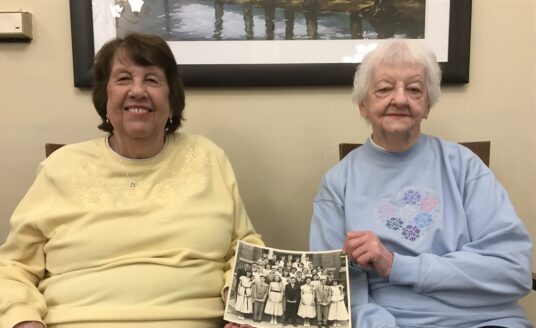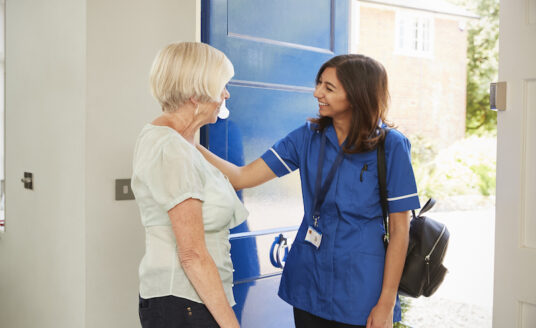When it comes to who you trust to take care of your senior loved one, you want to know they’re getting the highest quality care possible from the most qualified people.
That’s where certification comes in.
Many families — or even prospective caregivers — might not know about the training required to become a provider in the state of Missouri. But in assisted living and skilled nursing communities, caregivers must be certified. Some paid companions or assistants, who are part of private duty agencies and help seniors with activities of daily living, do not.
Certification makes providers stand out as the best-trained in their field.
What Types of Caregivers Require Certification in Missouri?
- CDS Caregivers: Consumer Directed Services is a Medicaid-funded program giving senior residents of Missouri the option to hire a caregiver of their choice to help them with daily activities. The caregiver can be a relative of the senior, but not their spouse or legal guardian.
- Home Health Aides: Caregivers who provide basic services to seniors, sick, or disabled people and usually work in patients’ homes.
- Certified Nursing Assistants: Certified nursing assistants help patients with direct medical needs, usually working with private duty agencies, in assisted living communities, and under the supervision of a nurse in skilled nursing communities.
With an aging population across the United States, skilled caregivers are increasingly in demand to assist our senior loved ones as they navigate their days. According to the U.S. Bureau of Labor Statistics, the number of jobs related to the care of older Americans is expected to increase by about one-third between 2020 and 2030. Nearly 600,000 additional people will be needed who can help our senior loved ones with things including:
Preparing meals: Proper nutrition is a vital part of staying healthy. But cooking isn’t always easy for seniors who may have difficulty working in the kitchen for the time it takes to prepare a home-made meal. In addition, older adults often live alone, so they may lack the motivation of going through the trouble of cooking a meal just for one person.
Making sure medication is taken on schedule: For it to work properly, medicine must be administered and taken at the time — and in the dose — prescribed by a physician. Straying from the treatment plan can result in the medication not working effectively or worse, it could potentially cause a dangerous overdose.
Housekeeping: Keeping a tidy home isn’t just about maintaining a sense of comfort or pride. Cluttered living spaces can be dangerous due to unsanitary conditions or trip hazards.
Cognitive care and physical assistance: Senior loved ones with cognitive or mobility issues require assistance with daily activities and ensuring their safety.
Companionship: Having someone around to share a conversation, take on in a hand or two of cards, or run errands with can help keep away depression and loneliness.
So you want to become a senior caregiver?
Earning your caregiver certification gives you a leg up in the job marketplace because you have training and education. Certification is also a sign that you’re committed to the ongoing education required to retain the special designation. It’s always an attractive trait to an employer when a job candidate has a history of wanting to continuously better themselves by learning additional skills and the latest techniques in their field.
Where Do You Start?
You can secure caregiver certification by searching for a program through your state health department. They’re typically offered at institutions including universities and vocational schools, through the American Red Cross and similar organizations, and by organizations which support senior healthcare providers like the American Caregiver Association.
State certification can be obtained for about $60, while national certification averages about $80. Private certification programs may sometimes cost a bit more, but they’re still affordable. Once you register, you’ll start learning about topics including:
- home safety
- personal hygiene
- prevention of abuse and neglect
- skin integrity
- social and recreational activities for older adults
- record keeping and documentation
- caring for people with dementia and Alzheimer’s Disease
After you’ve completed your certification program, you’ll take an exam to test what you’ve learned. You will then be issued a certificate to prove you’re a highly qualified expert in your field… and hopefully celebrate this tremendous accomplishment!
Want to find out more?
If you’d like to stay up to date with Bethesda Health Group, sign up here to receive our blog and newsletters!
"*" indicates required fields
Related Articles
Want to find out more?
If you’d like to stay up to date with Bethesda Health Group, sign up here to receive our blog and newsletters!
"*" indicates required fields



